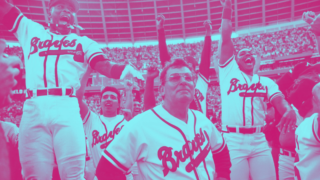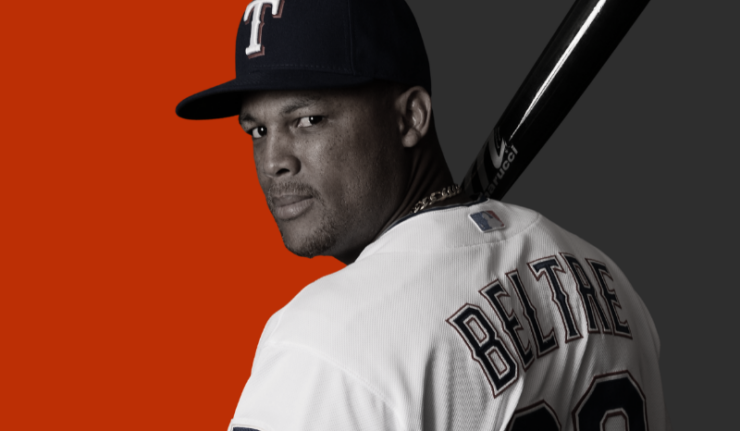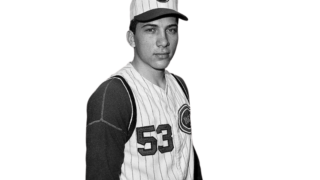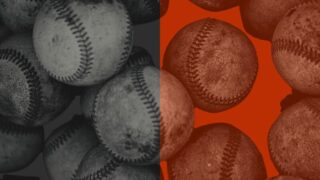Adrian Beltré was an entertainer who happened to play baseball. He had a playful sense of humor, and in the three primary cities in which he played, Beltré became a fan favorite. One of the singular unique players of his generation, Beltré never forgot that he was playing a game.
In 2024, he’s been elected to the Baseball Hall of Fame, earning the honor in his first year of eligibility. He’s a deserving “first ballot” Hall of Famer: more than 3,000 hits and 400 home runs, as well as several Gold Glove awards.
Beltré and shortstop Elvis Andrus had a routine they perfected during their time together in Texas. When there was a pop fly on the left side of the infield, Beltré would drift near it and pretend to be ready to make the play. After Andrus caught the ball, Beltré would look at him as if he had strayed into his territory. Sometimes one of the men would draw a line in the infield dirt, as if setting a boundary between the third baseman and the shortstop. It was like a routine that you’d see from the Harlem Globetrotters. Fans ate it up.
There was something Beltré did at the plate that drove umpires crazy. After he took a pitch that was clearly a strike, Adrian would yell “OUTSIDE!” It was designed to unsettle the umpires, but everyone in the league got used to it and it became one of his trademark gags.
The Dodgers, dating back to their courage in signing Jackie Robinson in the 1940s, have long been willing to scour the hemispheres to find a ballplayer. The team was one of the first to dedicate scouts to Latin America, one of the first to employ Latin speaking coaches. They found Fernando Valenzuela in Mexico, they signed Pedro Guerrero, and developed Candy Maldonado and Mariano Duncan. Their scouts scooped up the talented Ramón Martínez in the Dominican, and also signed his little brother, a beanpole pitcher named Pedro. The Dodgers developed an academy in the Dominican Republic in the 1980s and sent some of their best American-born players there so they would learn Spanish and develop a rapport with Latin players.
Dodgers’ Latin American Baseball Academy
One of the players who went through that academy was a young Beltré, a skinny infielder from Santo Domingo. Beltré was not just young, he was one of the youngest prospects the Dodgers ever signed. Beltré inked his first contract with the Dodgers only three months after his 15th birthday. He was assigned to his first professional team two years later, by which time Adrián had added 20 pounds to his frame. That extra weight helped: Beltré hit 25 home runs in his first minor league season. But as much as those home runs pleased the Dodgers, Beltré’s defense at the hot corner was the real head-turner. He had great feet and a strong arm.
The most important man in Beltré’s career was Tommy Lasorda. The round Dodger patriarch managed his last game for the Dodgers in 1996, the same year Beltré made his pro debut. Lasorda kept a watchful eye on every top prospect in the organization, and he especially had an affinity for Latin players. In 1998, Lasorda was asked to serve as the general manager of the Dodgers on an interim basis. His first move—literally, the first player transaction Lasorda performed as a GM—was to summon Beltré to the big leagues. LA’s starting third baseman was Bobby Bonilla, whom they had acquired in the blockbuster Mike Piazza trade a month earlier. But Bonilla had just gone down with an injury. Beltré made his debut on June 24 at Chavez Ravine. In his first at-bat he stroked an RBI-double down the left field line off Chuck Finley. He added another hit later, giving him the first two hits of 3,166 in his career.
“Tommy believed in me when I was 19 years old,” Beltré said, “[That] gave me so much confidence as a young player, new to this country, new to the major leagues.”
After the Dodgers showed faith in him, Beltré basically stayed in the lineup for the next 21 years. He logged seven years in LA, five in Seattle, and eight in Arlington with the Rangers. He was a very good defender from the get-go, but he matured to become a power hitter.
How is Adrián Beltré one of the five best third basemen of all-time when he wasn’t an All-Star until he was 31 years old? The answer has to do with the two phases of his career. In his first phase, Beltré was a very good third baseman: essentially he was Doug DeCinces through age 30.
| Player | G | PA | R | H | HR | RBI | AVG | OBP | SLG | OPS+ |
| Beltré (Age 19-30) | 1681 | 6877 | 828 | 1700 | 250 | 906 | .270 | .325 | .453 | 105 |
| DeCinces (Career) | 1649 | 6534 | 778 | 1505 | 237 | 879 | .259 | .329 | .445 | 115 |
DeCinces played in an era where runs were more scarce, so his production was a little more valuable, but you get the idea: Beltré was a really good third baseman for his first 12 seasons, but not a great one.
After his 30th birthday, Beltré hit for more power, increased his walk rate, and lowered his strikeouts, lifting his batting average. He had the fortune to move to a park suited for him, The Ballpark in Arlington. His last nine years look fairly similar to the career of David Wright.
| Player | G | PA | R | H | HR | RBI | AVG | OBP | SLG | OPS+ |
| Beltré (Age 31-39) | 1252 | 5253 | 696 | 1466 | 227 | 801 | .307 | .358 | .514 | 130 |
| Wright (Career) | 1585 | 6872 | 949 | 1777 | 242 | 970 | .296 | .376 | .491 | 133 |
Again, not a perfect match, mostly because Wright’s numbers are his entire career, while Beltré’s are his finish line, which is why he has fewer games, hits, runs, and RBI. But the rate stats of Beltré and Wright are pretty close. Beltré won more Gold Gloves after age 30 (three) than Wright did his entire career (two).
If you add together the careers of Doug DeCinces and David Wright, two of the top 30 third basemen of all-time, you get Adrián Beltré, and that’s why he ranks fifth.
Beltré hit .286 with 237 home runs and an .820 OPS in home games, and .286 with 240 home runs (.818 OPS) in road games. Not quite Stan Musial (1,815 hits at home and on the road), but pretty symmetrical.




